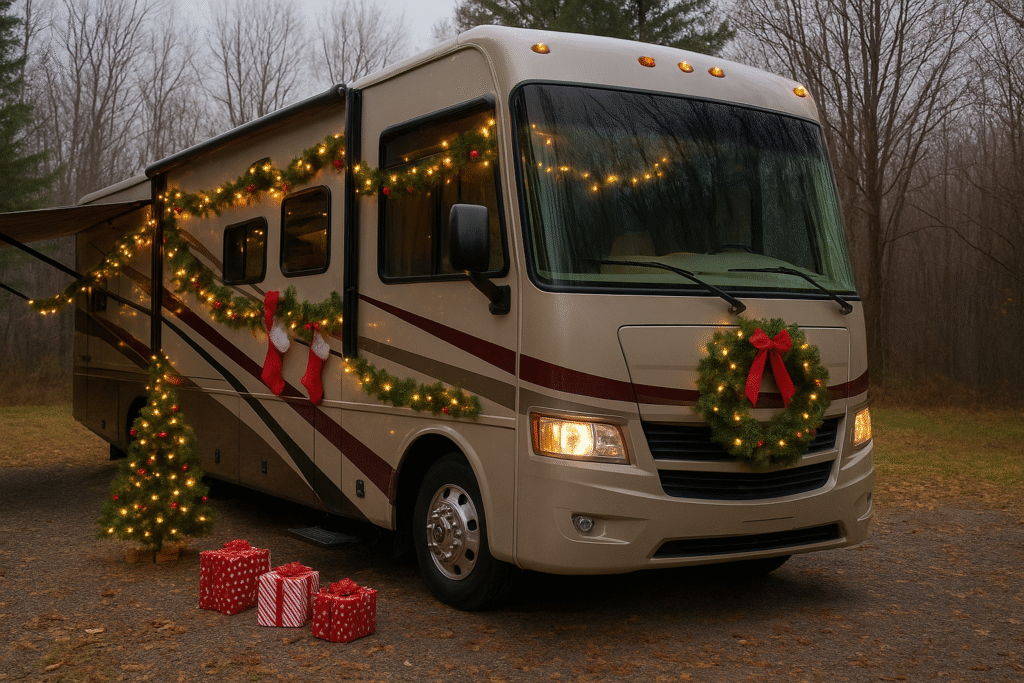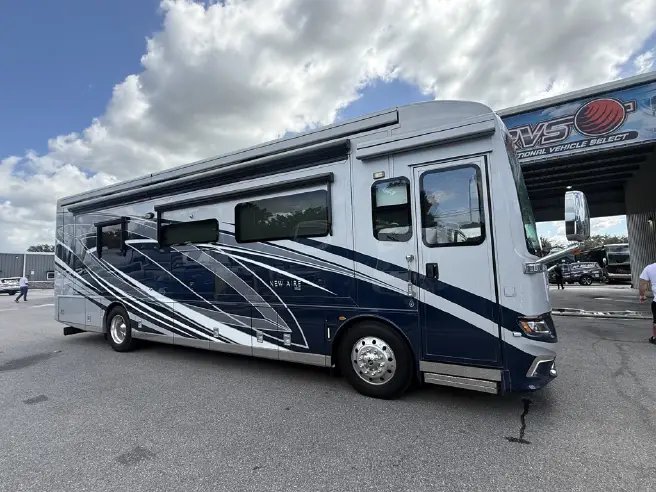If you’re thinking about buying an RV, you may find the decision-making process a bit overwhelming. While it’s exciting to imagine those trips on the open road that you’ll be able to take as soon as you have your new rig, there are a lot of factors that need to be considered before you make this big purchase. One of the most important things you’ll need to consider is the type of RV you want. This will depend on a number of factors, including cost, the living space you require, the length of the trips you plan on taking, and how many passengers will be traveling with you. There’s certainly no shortage of recreational vehicles out there, but which one is right for you?
One of the most popular types of RVs is the fifth wheel. Also called “fivers,” these trailers have a raised front section that hitches directly over the rear axle of a truck so that they can be towed. They typically range from 20 to 40 feet and usually come with bunk-style beds and multiple slideouts. Fifth wheels offer a variety of benefits that could make this type of rig the perfect option for you. Read on to learn more about the advantages and disadvantages of traveling with a fifth wheel.
Advantages of a Fifth Wheel
- Having a vehicle for use – One of the main advantages of using a fifth wheel is that you can easily unhitch your tow vehicle (or toad) once you make a base camp and use it to explore new areas and run errands without having to pull around your trailer. This is convenient and will offer big cost savings on fuel.
- Ease of parking and turning – Because a fifth wheel is towed, it’s easier than a Class A, C or travel trailer to maneuver and park. The turning radius also tends to be better.
- Storage and living space – Fifth wheels offer a two-level living space due to the section that is raised above the rear of the truck. This can offer more privacy and more storage space. Plus, because the overhang extends over the truck by about five or six feet, this makes for a shorter overall vehicle length.
- Stability – Fifth wheels tend to be the more stable towable, as compared to a travel trailer. The hitch, as well as the weight distribution over the rear axle, helps to prevent too much sway from passing vehicles and increased speeds.
Disadvantages of a Fifth Wheel
- Necessity of having a truck – A fifth wheel does require a truck for towing, whereas traditional travel trailers can be towed with a truck or SUV. If you’re traveling with more than two people and require the space of an SUV, fifth wheels might not offer you the transportation solution you need.
- Lost storage space – While the living space of the fifth wheel can be a bit more private, there is some space that is lost due to the section of the vehicle that overhangs the truck. In addition, some people find they can’t store as much in the flatbed of the truck due to the fifth wheel hitch.
- Not as much “living” time – It is not recommended for people to ride in a fifth wheel that is being towed; in some states, it is even illegal. This means that using the bathroom, cooking and watching television are a few of the things that passengers won’t actually be able to do on the road as they would be able to in a Class A or C motorhome.
- Stairs – If you or someone traveling with you has a disability, a fifth wheel may not be the best option. The raised portion of the vehicle above the rear of the track does require stairs to reach and may be difficult for older individuals or anyone with limited mobility.
For many people with wanderlust who are looking to do some serious RV traveling, a fifth wheel is a great option that tends to cost less than most motor homes. Before deciding on a fifth wheel, however, be sure to tour lots of models and determine the needs for you and your fellow adventurers!
Questions? Feel free to contact us.




